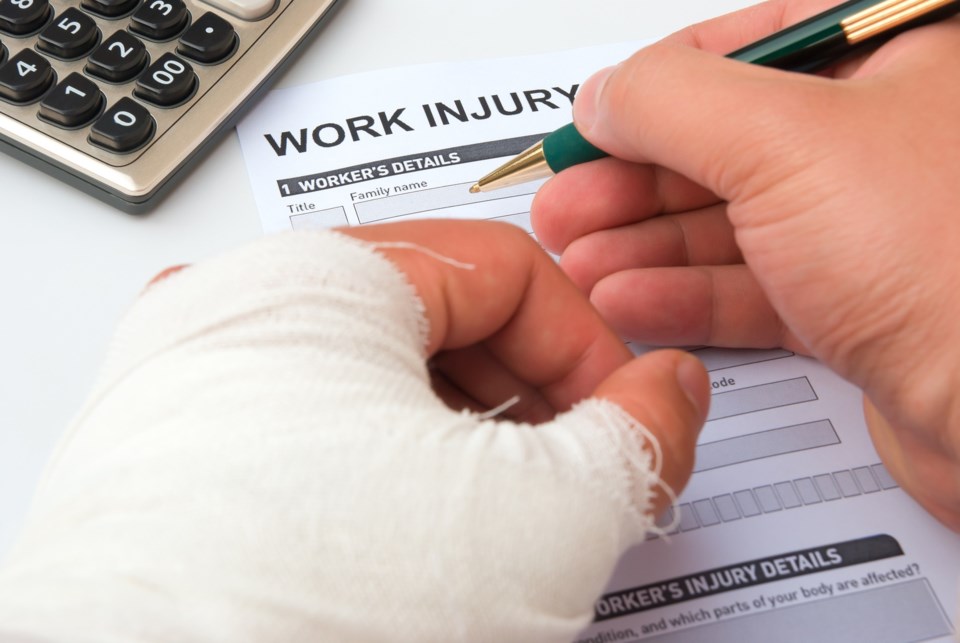The Saskatchewan Workers’ Compensation Board released its 2017 injury rates today. The total workplace injury rate for 2017 was 5.25 per cent, a 5.4 per cent drop from 2016. Since 2008, this represents an overall drop of 48.6 per cent (2008 total injury rate 10.21). The total number of reported claims in 2017 was 28,952, a decrease of 1,001 from 2016 or 3.34 per cent.
In 2017, for the second year in a row, 88 per cent of Saskatchewan employers had zero injuries. More than 57 per cent of WCB rate codes had lower total injury rates in 2017 than in 2016.
“Thanks to the injury prevention efforts of workers, employers and safety partners around the province, we have seen significant reductions in Saskatchewan’s injury rates,” said WCB Chairperson Gord Dobrowolsky. “Since we launched Mission: Zero in 2008, workers, leaders, employers and the public have responded to make Saskatchewan workplaces safer.”
Despite the total injury rate drop, the Time Loss injury rate remained the same at 1.86 per cent in 2017. Time loss claims increased from 7,813 in 2016 to 7,888 in 2017.
“The fact that the 2017 Time Loss injury rate did not continue to shift downward, as we’ve seen in the past 14 years, may be an indicator that we need to keep working together to effectively identify and control all workplace hazards. Now is not the time to become complacent,” said Dobrowolsky.
WorkSafe Saskatchewan, which is the WCB’s partnership with the Ministry of Labour Relations and Workplace Safety (LRWS), focuses on an integrated provincial injury prevention strategy.
“Through WorkSafe, we offer awareness campaigns, education and training and targeting initiatives that includes priority employers, industry-focused strategies as well as a youth-targeted strategy in addition to our partnerships and safety leadership development,” said WCB CEO Peter Federko. “That includes classroom and online training, as well as online and hard copy resources, for workers and employers.”
In 2017, WorkSafe developed WHMIS Train the Trainer course materials that employers can provide on site, as well as launched a foundational pillars app tool to help employers develop an effective safety management system.
“It is encouraging to see injury rates continue to decline in Saskatchewan,” said Don Morgan, Minister of Labour Relations and Workplace Safety. “However, we must continue to work diligently with safety partners and employers to strengthen safety cultures in workplaces and industries.
“We are all responsible for workplace health and safety, but too often employers are not in compliance with legislation that sets out the minimum standards to protect workers. Employers have many responsibilities, including providing adequate training, supervision and equipment. Employees should be aware that they have the right to understand the hazards in their workplace, participate in workplace safety and refuse work they believe to be unusually dangerous to themselves or others.”
According to the Association of Workers’ Compensation Boards in Canada (AWCBC), Saskatchewan had the third highest time loss injury rate in Canada in 2016 and the sixth highest number of lost time claims in Canada. Unfortunately, despite the continued drop in injury rates, there were 27 fatalities in 2017.
“This is a tragedy. Twenty-seven individuals lost their lives and their families are forever impacted,” said Federko. “No workplace injuries are acceptable. We believe Mission: Zero is possible and that keeping our workplaces safe is a shared responsibility. We will continue to work with employers, workers and partners until we achieve zero injuries.”




